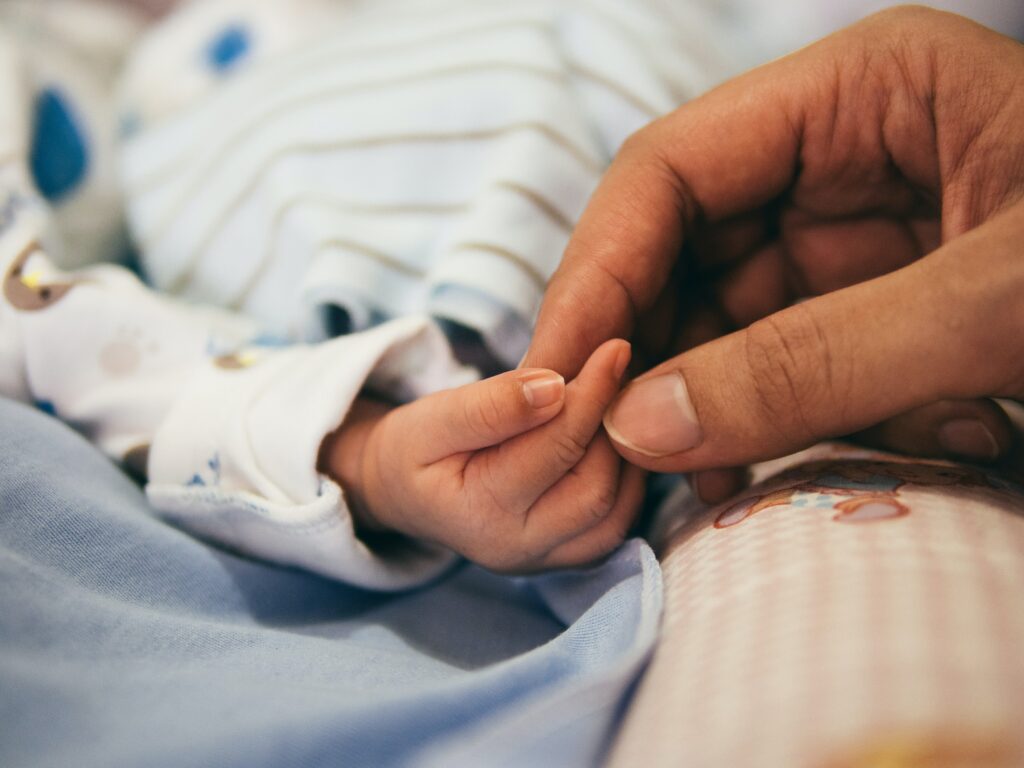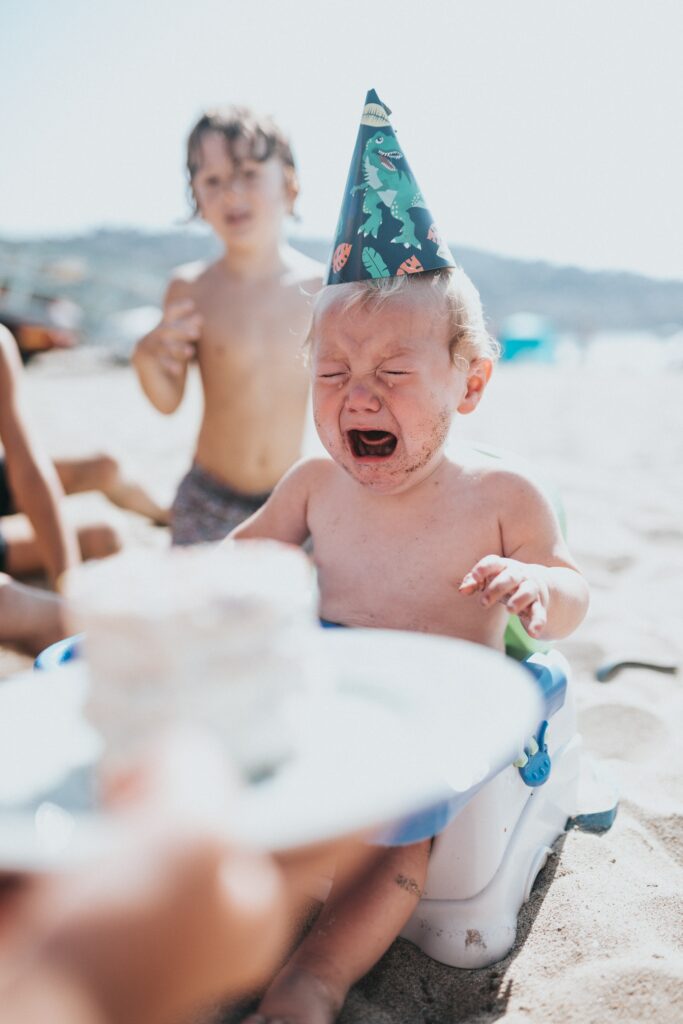Perfection: The perfect parent


We live in a world where, increasingly, we expect perfection. Perhaps we don’t always admit that to ourselves, but it is evident in our behaviour when things go wrong. The smartphone that breaks, the train that is delayed, our child’s poor test scores, the outbreak of a virus. When these things happen, the predominant tendency is to cast around to find the person responsible, then complain, protest or sue to obtain an apology, compensation and – most of all – a promise that it will never happen again. New regulations, better technology, improved education, more effort, more money. If we only apply enough of these, then nothing need ever go wrong again. When improvements fail to materialise, we look elsewhere for perfection. Switch suppliers, move to another country, find a new partner. This constant quest for perfection is so ingrained in our society that we rarely even notice it, let alone challenge it. This series of posts will look at the effect of our desire for perfection on various aspects of our lives. This post: the perfect parent
Being a parent is by far the hardest thing I have ever done. At the same time, it is the thing I most desperately want to get right. Many parents probably recognize this. You give birth to this tiny little being, so perfect that it takes your breath away. You want to love and protect them, to keep them safe, in the untouched state in which they came from the womb. I remember fumbling to put a bib around my baby daughter’s neck, eyes and brain bleary from lack of sleep, and accidentally catching a fold of her skin in the stud. Her howls ripped my heart apart, and the tiny bleeding spot filled me with a sense of guilt completely out of proportion to the damage done. My daughter was no longer flawless – and it was my fault.

Given the incredible importance of parenting, it’s unbelievable how unprepared we are at the start. I attended two different prenatal courses, yet none of them even taught me how to change a nappy, let alone how to interpret and respond to my baby’s cries. Like increasingly many people in the modern world, I grew up at a large distance from my aunts, uncles and cousins, so I witnessed very little parenting firsthand. I turned for advice to as many sources as I could – friends, the midwife, the district nurse, books, online forums. And I discovered that for every person who says do A, there is another person who says that A is terribly damaging and that if you really want the best for your child you must do B. Breastmilk or formula. Leaving your baby to cry or going to pick it up. Following a routine versus centering your life around the baby’s rhythm. As children grow up, screentime, diet, choice of schooling and rules for going out all form battlegrounds. And I do mean battlegrounds. Many people so desperately want to be perfect parents, that they can permit no room for alternative approaches, as if they admit someone else could be right, they admit to a possible crack in their own perfection.
What makes a good parent?
Emotions run high, therefore, and it sometimes seems as if everyone weighs in with an opinion about our parenting – and most of them think we are doing it wrong. Nasty looks and muttering when our child almost causes an accident, nasty looks and muttering when we chastise our child to avoid them causing an accident. The paradox is that while everyone is agreed on the need to be a good parent, the definition of good is wildly different. While one parent prides themselves on raising confident children who are unafraid to question authority, another concentrates on raising respectful children who obey the rules. One parent will drive their child to achieve their utmost potential, another will advise their child to follow their heart and find their own way. What we think of the children that result depends entirely on our own outlook. An outgoing extrovert, or a cheeky little sod? A sensitive artistic soul, or a coddled wimp? A precocious entrepreneur, or a tragic future member of the rat race? No matter how we raise our children, there will always be someone who tuts and shakes their head. The huge range of opinions about the desired outcome of parenting is one reason why advice varies so wildly.

Happiness now, or happiness later?
At the end of the day though, the most regular – and vocal – criticism of our parenting comes from our own children. It’s a rare day that passes without one of my children having a temper tantrum or a fit of tears, and they usually blame it on me or my partner. Just yesterday my younger daughter shrieked that she would hate me for the rest of her life (I believe my heinous crime was to insist on warm trousers for going outside). It’s a hard thing to have someone you love so dearly and work so hard for regularly accuse you of wantonly ruining their life. As parents, what we most want is for our child to be happy. Yet children are made happy by things that, as parents, we know are very bad for them. Unlimited sweets, ditto television and computer games, skipping schoolwork, staying up late. While they revel in the moment, parents see the gathering storm ahead: obesity, fillings, dropping out of school and struggling to find a decent job. All things that we know will destroy our children’s happiness in the long run. Parenting could almost be defined as the quest for the right balance between happiness now and happiness later.
Faced with the demands of your child and the criticism of everyone else, it is tempting to go into overdrive. To carve vegetables into animal shapes to entice your child to eat them, spend weekends role-playing and evenings helping them with their homework. To face every conflict situation, no matter how exhausting and infuriating, with a calm voice and a set of pedagogically approved steps for dealing with tantrums. I know such parents, and they’re often overtired and overwrought, frequently taking out their pent-up frustrations on their partner. But that doesn’t matter to them, because they are sacrificing themselves on the altar of their children, to be the perfect parent.

Perfect parent = stressed out family
But is a perfect parent so perfect? I see a great deal of advantages in being an imperfect parent. The first – far from inconsequential – advantage is that ceasing the struggle to achieve perfection and giving yourself a little more time and attention makes you a happier parent, and children feel that. My own mother worked very hard at being a good mother, sewing clothes, baking delicious meals, putting on amazing parties, keeping the house perfect. I treasure all the wonderful things that she did for us. But I also vividly remember the moments when she couldn’t take the demands she placed on herself anymore, and they are the most traumatic memories of my childhood. I strongly believe that it would have been better for all of us if she had sometimes put herself first. If the house had been a little messier, the meals simpler, and we had all spent more time enjoying being together.
Coping with mistakes is part of life
Children learn by copying the behaviour of their parents. So, by running ourselves into the ground trying to be perfect, we teach them to do the same. Either they too exhaust themselves in the pursuit of perfection, or they give up at the first hurdle as they have never seen how to handle setbacks. Instead, we can be open about our own imperfections and errors to show them that it is normal that things sometimes go wrong. That we can be angry and upset when things don’t go our way, but that we pick ourselves up, apologise and try to learn from our mistakes. Recently I baked gingerbread biscuits with my daughters. After the first batch was already in the oven, my younger daughter picked up a measuring jug full of sugar. “When does this go in?”, she asked. It could have been a moment of panic, of failure, of tears and self-recrimination that I hadn’t checked the recipe steps more carefully. Instead, we discussed what had gone wrong and how we could fix it, and my older daughter suggested putting the sugar on top of the biscuits. We did – and it worked. Following the recipe properly would have given tastier biscuits, we all agreed, and we had plenty of ideas for avoiding such a mishap the next time. Yet it gave us immense satisfaction to feel we had rescued the situation from the jaws of disaster.

Perfection is the enemy of learning
Striving for perfection is diametrically opposed to letting our children experiment and learn. When my girls were little, I always took pride in doing my best to decorate their birthday cakes (even though my efforts inevitably fell short of my own mother’s fabulous creations). One year, making animals out of fondant to decorate a jungle cake, my about-to-turn-seven-year-old asked if she could help. My immediate instinct, in my pursuit of a perfect cake, was to say no. Then I came to my senses. Whose cake was it? Who exactly was I trying to make happy? She made an elephant, I made a monkey and a lion. The result wouldn’t win the perfect mother prize on Instagram, but my daughter and I had a great time and the cheerful, colourful cake was truly hers. Since then my children and I collaborate on everything from birthday cakes to clothes for their cuddly toys, and while I sometimes have to bite my lip while my fingers itch to polish up their efforts, they are learning so fast that soon they will do a better job than I can. What more could I want as a parent?
Our imperfections give our children room to grow
When my children were little, I did my utmost to decipher their childish babble. My partner, on the other hand, simply asked them to say it again more clearly. Both methods led to us understanding our children, but my method honed my own skills so that I could understand them, whereas my partner’s method stimulated our children to develop so that everyone could understand them. Was I driven by what was good for my children, or what my image of a good mother was?
I am shy, and so I’ve always dreaded the moment after school when I have to approach another parent to arrange for our children to play together. I could have put a lot of effort into overcoming that, but instead, I send my children to handle the opening salvos. Wimpy of me, I know – but they have got very good at being able to talk to anyone, both adults and children. It gives them a great deal of self-confidence.
It feels lazy and selfish to take the path that makes our children work instead of ourselves. But the reality is that the less perfect we are as parents, the less we do for our children, the more room we give them to develop. They learn to make their own contribution and to help others, rather than being helpless babies whose super-efficient parents take care of everything for them.

There are, of course, limits to this. If we show our children too much of our own vulnerabilities, if we step back and leave things up to them too often or too soon, then they lose that secure feeling, that faith that Mum and Dad will protect and look after them, that is so essential to a child’s wellbeing. But in between the superparent and the hopeless case whose children have to take care of them instead of the other way around, there is still a whole playing field of possibilities to explore.
We do NOT determine our children’s future
In the film Parenthood (both hilarious and painfully familiar for parents), there is a scene where Steve Martin is coaching his son’s baseball team. For a moment, he is lost in a future vision where his successful child graduates, delivering a speech to his class in which he gives all the credit to his father. Then, back in the present, his son misses a catch, causing the whole team to turn on him. A new vision comes over the father, of his son gunning down the other students at the graduation ceremony. That is at the core of the stress of being a parent. We long for happy, successful children, and we dread them being unhappy failures. In either case, we attribute all the responsibility for the outcome to ourselves. And that is the ultimate hubris.
There are two people in a parent-child relationship, and they are both unique individuals, with a unique interaction. That is the second reason why parenting advice varies so much: you never know what will work well for a given parent and a given child. Depending on the child’s character, an ambitious, driving parent can spur them on to great heights, or crush them completely. An extrovert parent can produce an outgoing, social child, or push their shy child further into their shell. A laid-back, permissive parent may give their creative child the space to be a free spirit, or provoke them into ever more outrageous bad behaviour in search of the limits that the parent will never impose. We can try to monitor our child’s wellbeing, to adjust our parenting style and see how they respond. But we can never fully predict the effect that our choices will have on our children. A well-behaved primary school child can go off the rails in secondary school, a depressed, hellraising teenager can settle down and be a very happy adult. It is important that we understand that our parenting is just one in a whole range of factors that influence our child’s future. We are only the launchpad to their lives. We try to give them the best start we can, but the ultimate course of their trajectory is not in our hands, but in their own. We can only do our best – and then stand by them on their journey.
